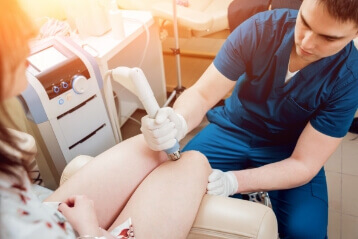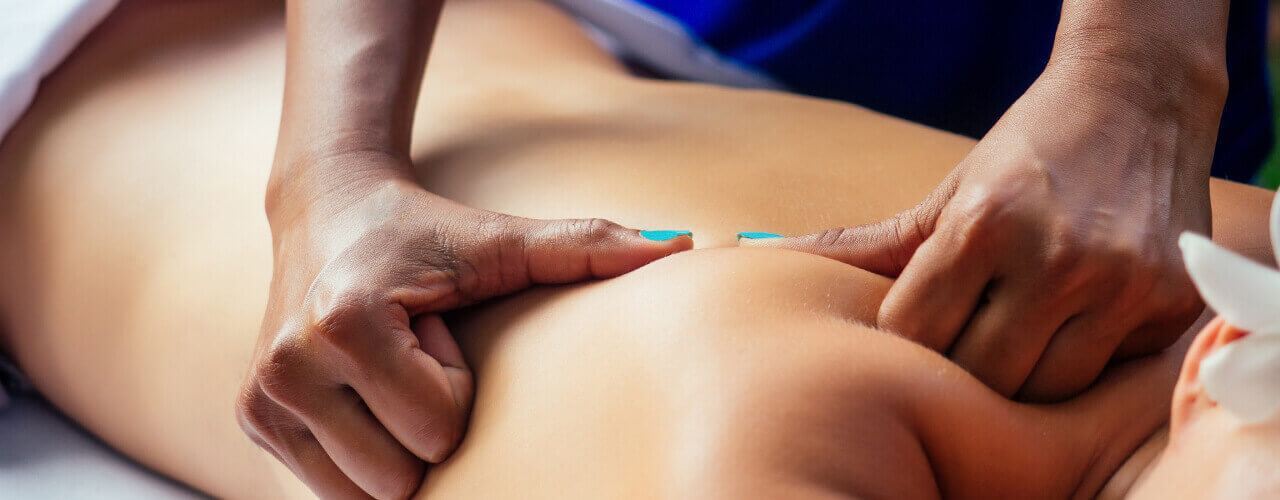TMJ Dysfunction
Are you having difficulty chewing or yawning? Do you have jaw pain? Do you hear a clicking noise when you open and shut your mouth? If so, these may all be symptoms of TMJ dysfunction. Temporomandibular joint dysfunction, also known as TMJ dysfunction, is a condition that causes pain and stiffness of the jaw joint and its surrounding muscles. This can make it very difficult to open your mouth, talk, yawn, and chew.
The temporomandibular joint connects the jaw to the skull. If there is an injury to this joint or it becomes damaged in any way, TMJ dysfunction may develop. It’s important to realize that the temporomandibular joint is a complex and important structure comprised of bones, tendons, and muscles that may cause you to feel pain on one or both sides of the jaw. If you are suffering from TMJ dysfunction, or you think you might be, contact Elite Physiotherapy Clinic, Progressive Sports Medicine, or Total Health Link today to schedule an appointment and find relief.
How is TMJ dysfunction diagnosed?
There is no single method or surefire way of diagnosing TMJ dysfunction. If you believe you may be suffering from this condition, a medical professional will analyze your medical history and perform a physical exam. Your physician may also send you to an otolaryngologist or a dentist specializing in jaw disorders. The idea is to rule out other medical problems before diagnosing the patient with TMJ dysfunction, as the symptoms may also be due to a condition known as trigeminal neuralgia, salivary gland disease, or even swollen lymph nodes. Once your diagnosis has been determined, you will be treated based on the nature of your symptoms.
Symptoms of this TMJ dysfunction include pain in the jaw, jaw popping, headaches, sore jaw muscles, locking of the jaw, pain in the temple, and earaches. There are many reasons why TMJ dysfunction may develop, but some common causes include misalignment of the teeth, gum chewing, arthritis, teeth grinding, or a jaw injury.
How is TMJ dysfunction treated?
In some cases, home remedies can be used to treat TMJ dysfunction. Some people respond well to over-the-counter pain relievers, such as Ibuprofen or Aspirin. Applying ice packs directly to the jaw joint can also help relieve pain. You may also find temporary relief through sedative essential oils, such as clary sage or lavender. When home remedies don’t work at providing relief, medical intervention may be necessary. Stronger muscle relaxers or anti-inflammatory medications may be prescribed to manage pain. A jaw specialist may also use a dental splint to keep teeth properly aligned and prevent tooth grinding. Other types of medical treatment include trigger point acupuncture, joint replacement, or a TMJ arthroscopy.
However, if you want to avoid taking pain-relieving medication and use a more holistic approach, physiotherapy is perhaps one of the most effective treatments for TMJ dysfunction. At your initial appointment, a comprehensive evaluation will be done of the neck, shoulder girdle, and thoracic spine in order to determine if those structures are causing your symptoms. Afterward, one of our dedicated Burlington physiotherapists will create a treatment plan based on the nature of your symptoms and your specific needs.
Your physiotherapist will analyze your jaw mobility and release muscle tension in the areas surrounding your neck and head. The goal of physiotherapy is to restore your normal function and the interaction of the jaw muscles and joints. Your treatment plan may consist of any combination of methods and modalities, including jaw exercises, soft tissue massage, joint mobilization, myofascial techniques, electrical stimulation, or ultrasound.
Contact us for relief:
If you are suffering from TMJ dysfunction, or you think you might be, contact our Burlington physiotherapy practice today. Our physiotherapists are patient-centric and committed to your health, working hard to help you manage and eliminate symptoms. Don’t suffer from jaw pain and stiffness any longer – contact Elite Physiotherapy Clinic, Progressive Sports Medicine, or Total Health Link today in Burlington, ON.




